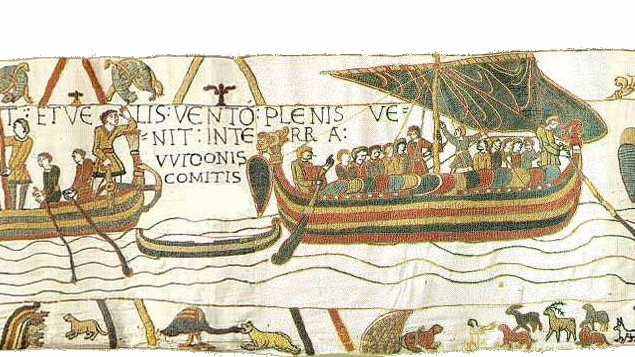
(credit: By unknown seamsters, Public Domain, https://ift.tt/2Dgv8Zt)
When William the Conqueror won the Battle of Hastings, he became King of England in 1066. This changed the political landscape of Europe and the course of world history. For the English aristocracy and religious leaders, the world turned upside down as William replaced them with his handpicked Normans. But what was it like for ordinary people in England? A recent study suggests that, for them, not much changed under the new regime.
We usually see the Norman Conquest from the lofty and often perilous view of nobility and clergy. The roughly 2 million (based on a 1086 census) ordinary people who lived through the upheaval left behind no written records to tell us how they felt or what they experienced. To understand what their lives were like during the Norman Conquest and the years of political, economic, and social upheaval in its wake, archaeologists have to turn to other kinds of evidence.
For the new study, Elizabeth Craig-Atkins (University of Sheffield), Richard Madgwick (Cardiff University), and their colleagues cobbled together part of the story from the bones and teeth of medieval Britons, as well as animal remains and microscopic residues left behind in cooking pottery. Together, those lines of evidence revealed what—and how well—people ate in the years on either side of the Norman Conquest. The results suggest that food supplies got a bit scarce during the conquest and the sporadic fighting that followed, but some aspects of life didn’t change much in its wake.
No comments:
Post a Comment